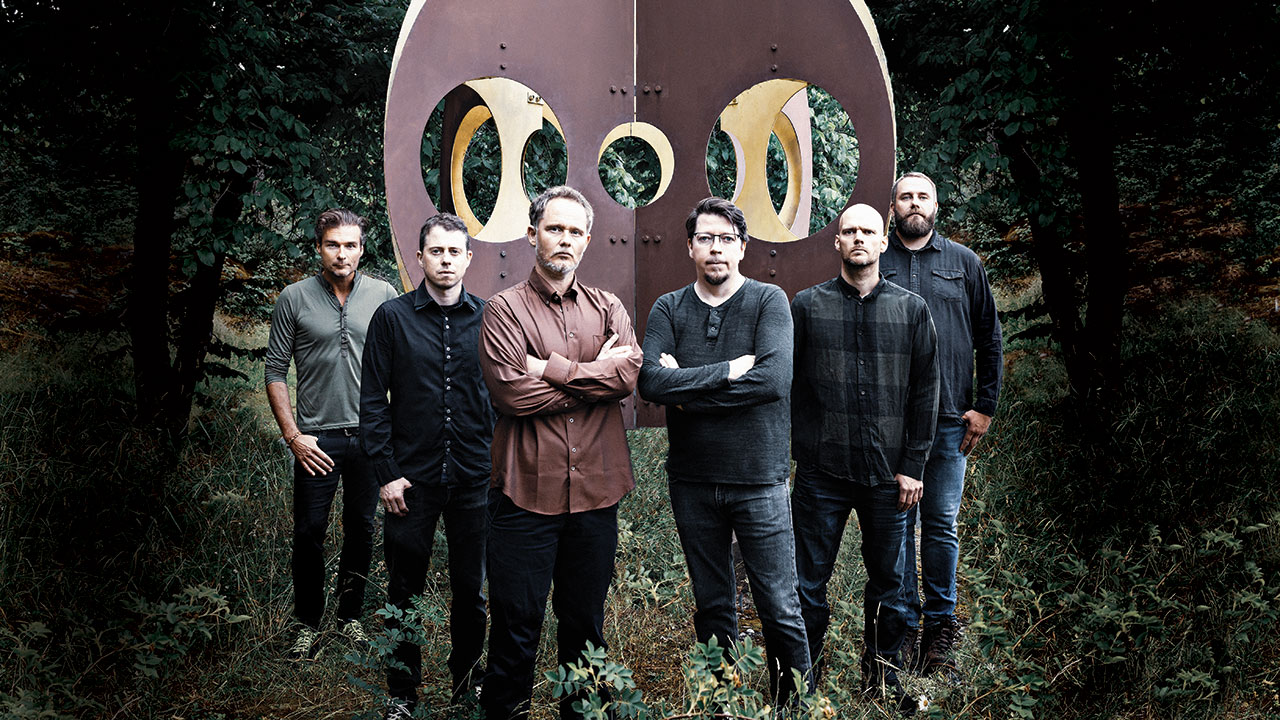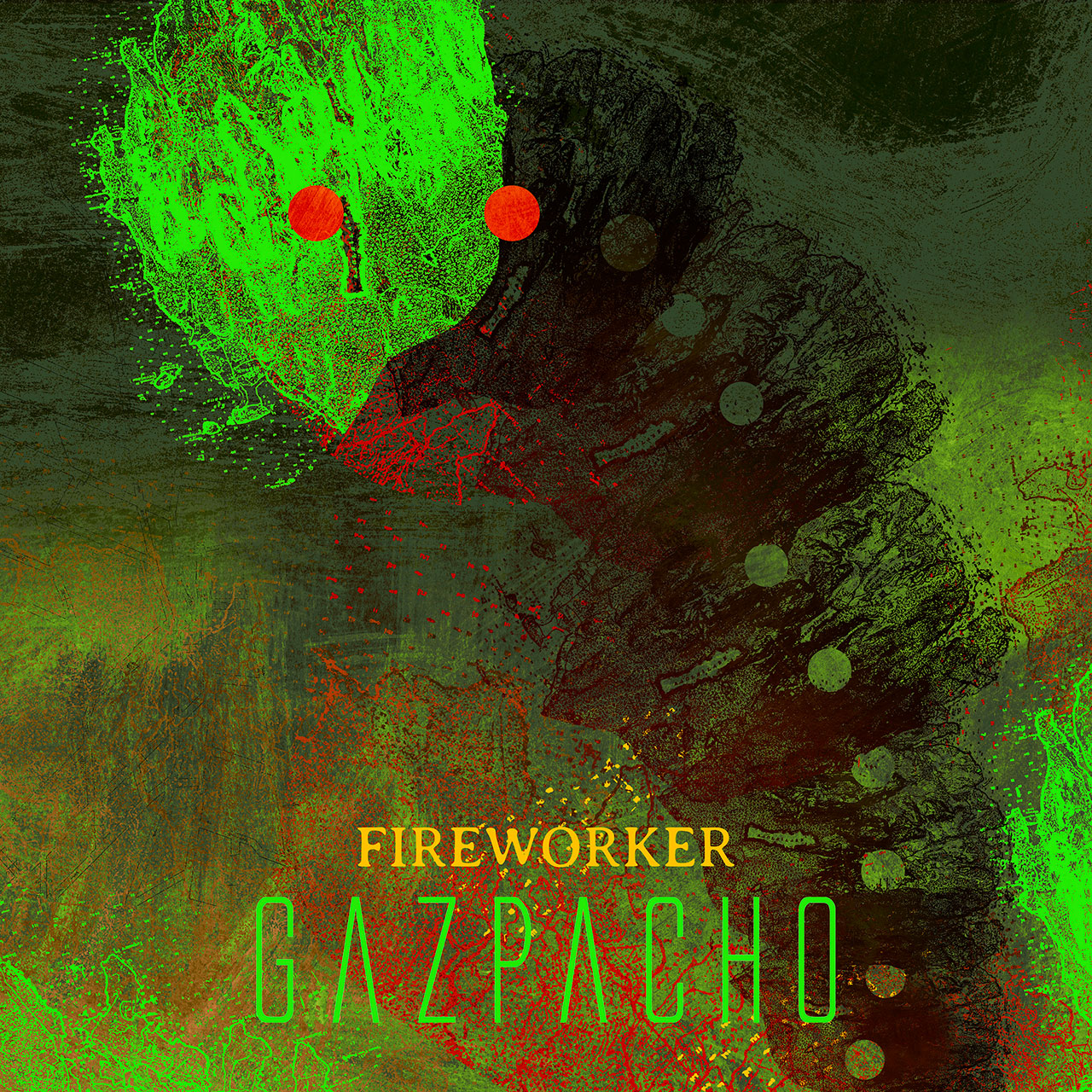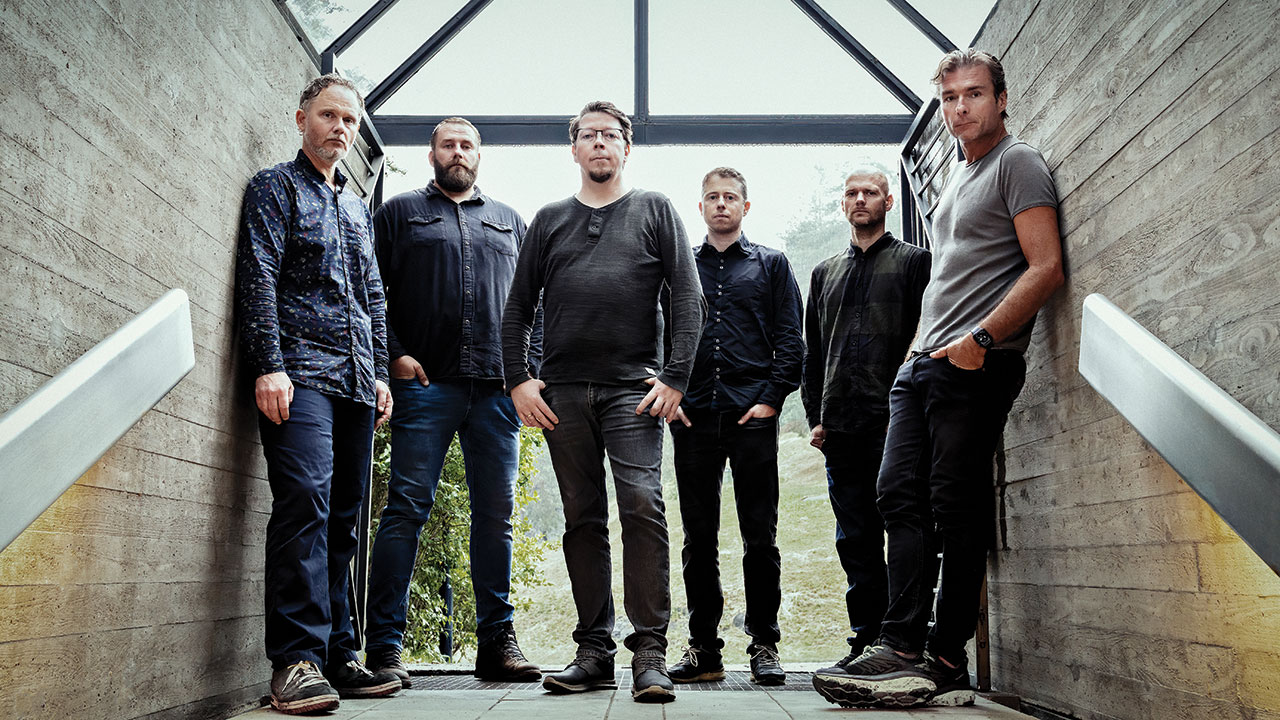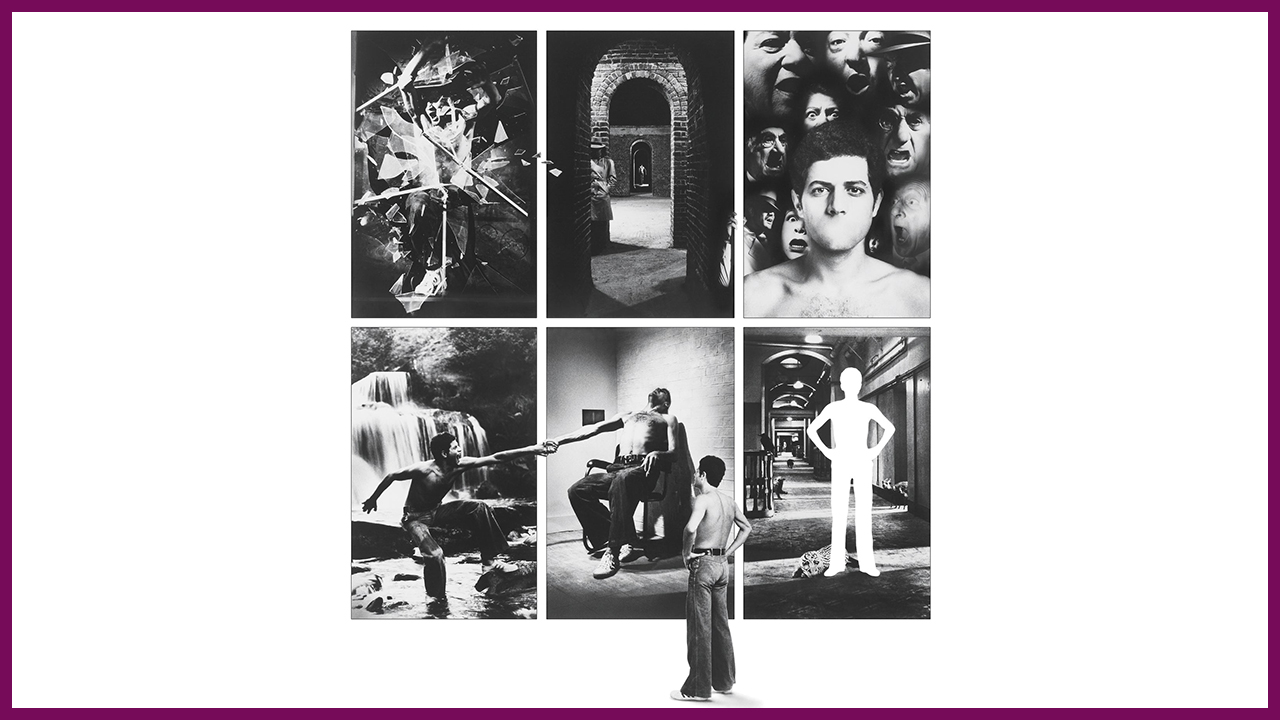“The best prog albums are the ones that take a long time to get into." How Gazpacho made Fireworker
Gazpacho's eleventh studio album, 2020's Fireworker, was yet another intriguing conceptual affair exploring the idea that there’s something within human beings that steers our behaviour without our control or consent.

Select the newsletters you’d like to receive. Then, add your email to sign up.
You are now subscribed
Your newsletter sign-up was successful
Want to add more newsletters?

Every Friday
Louder
Louder’s weekly newsletter is jam-packed with the team’s personal highlights from the last seven days, including features, breaking news, reviews and tons of juicy exclusives from the world of alternative music.

Every Friday
Classic Rock
The Classic Rock newsletter is an essential read for the discerning rock fan. Every week we bring you the news, reviews and the very best features and interviews from our extensive archive. Written by rock fans for rock fans.

Every Friday
Metal Hammer
For the last four decades Metal Hammer has been the world’s greatest metal magazine. Created by metalheads for metalheads, ‘Hammer takes you behind the scenes, closer to the action, and nearer to the bands that you love the most.

Every Friday
Prog
The Prog newsletter brings you the very best of Prog Magazine and our website, every Friday. We'll deliver you the very latest news from the Prog universe, informative features and archive material from Prog’s impressive vault.
In 2020 Norwegian prog rockers Gazpacho released their eleventh studio album Fireworker, keeping up their tradition of fascinating and complex concept albums. Prog sat down with keyboard player and main songwriter Thomas Andersen to get the whole picture.
"It’s a difficult album to get into. It doesn’t welcome you with open arms but when you get there, I think it can be worth it,” declares Thomas Andersen on the subject of Fireworker, the new release from Norway’s Gazpacho. He’s talking to Prog from his home studio south of Oslo where we can spot a 1968 Moog and a signed Anderson Bruford Wakeman Howe T-shirt. When not working on Gazpacho’s latest opus, Andersen has been enjoying Rick Wakeman’s autobiography (his childhood hero) and it becomes clear that he’s a widely read man. The original plan for the new album was a concept based on Henrik Ibsen’s play Little Eyolf, about a couple whose baby is left handicapped after he falls off a table while they’re having sex. “The play is about how they fight because they now hate each other, they blame each other for the injury of the boy,” says Andersen. “It’s a fantastic psychological play on how we hate our partners. But then we felt we couldn’t really improve on what was essentially a perfect psychological play, but there was still something about how instinct was involved there somewhere.”
This led to Andersen exploring the idea that there’s something – he calls it an entity, the titular Fireworker – within human beings that steers our behaviour without our control or consent. He compares it to the way the body reacts unconsciously when someone slips on ice. “We’re ruled by something deep inside us which is not of us,” he says. “Your body works out the mathematics of how you’re not going to fall, and it does something weird with your arms, it overrides whatever you’re doing. And if it can override you in these cases then there’s a high chance it could override you in a lot of other situations.”

To give an example of this in action, Andersen explains how the disgust reflex is suppressed during sex and the person is rewarded with an orgasm for engaging in behaviour that allows the entity to perpetuate itself in the next generation. “It’ll give you the good drugs up until the point when you’ve done what it wants, then it’ll shut them off and there you are feeling like an idiot. You commit acts that may not even be in your best interest,” he says. “One of my ancestors was a girl who was knocked up by a Swedish soldier and when he found out she was pregnant, he drowned her in a pond. He was beheaded, so it wasn’t great for him either. He was under the influence of something else that forced him to do something stupid.”
On the surface, Fireworker doesn’t appear immediately linked to previous Gazpacho concept albums Demon or Molok, but in Andersen’s mind they all share a protagonist. “In our album Demon, from 2014, this is the same character who realises there’s someone who is immortal, and he thinks this might be a demon. He’s stalking him all over the world in all the places the demon appears. I think it’s the same protagonist in Molok who builds the machine Molok, which is sort of a steampunk version of a computer that works out this algorithm that can predict everything and that damages physics itself.”
All manner of ideas fed into the creation of Fireworker. One section of the opening song Space Cowboy made Andersen think of Paris, which led him to the Parisian fashion for radium in the early 20th century and to ‘the radium girls’ – a group of US factory workers who painted glow-in-the-dark faces on clocks, unaware that they were being slowly poisoned by the radioactive paint. This, in turn, led to Marie Curie, the physicist and chemist who conducted pioneering research on radiation.
“Did you know that with a Geiger counter you can still pick up her route to work through Paris?” says Andersen. “You can find it because she walked it every day and it’s still radioactive. Her notebook is in a lead case in a bank vault because it’s so radioactive. If you had Madame Curie’s notebook on your bookcase, it would probably kill you. It’s all mixed with my idea that some thoughts are so dangerous, and some parts of the mind are so dangerous, that they can kill. It’s all just letting the mind wander, and everything comes to you. The mind is a wonderful thing.”
Sign up below to get the latest from Prog, plus exclusive special offers, direct to your inbox!

This free flow of ideas could easily be lost in musical translation, but Andersen isn’t concerned about the listener understanding everything on the first encounter. “The best prog albums are the ones that take a long time to get into,” he says. “This is not one of the best prog albums by any stretch of the imagination, but I think it’s a good one and I think it answers to the call of what prog maybe could be now in 2020. To me, it’s more like a book or an intellectual debate mixed with being an album.”
Further to that, he hopes the listener will take what they want from the music or the lyrics and project themselves into the experience. “That’s what we all used to do with our favourite albums,” he says. “I didn’t understand the Hounds Of Love by Kate Bush for the first damned 10 years I listened to it. Then I came across an interview and I understood it was about someone at sea, but that could be a metaphor for God knows what. We’re all lost at sea, and I certainly felt that way as a teenager. I could relate to it like hell. Only 10 years into loving this did I get the actual story of The Ninth Wave, the B-side of that album. You don’t really have to understand these albums. You understand them because you understand you.”
Fireworker explores dark topics and the music is suitably laced with melancholy, but making the album wasn’t a voyage into despair or despondency for Andersen and Gazpacho. “Personally, it makes me very happy to find a way to convey an idea which I find interesting,” says Andersen. “I find it so interesting that I have to spend a yearr, a year and a half working very hard on it and what I like about it is the daydreaming aspect.”
He remembers a book of poems he came across as a child, each poem just a single word in length – Brother, War or Grass for instance. “Each one of those words gives you an image, like grass. You can smell the grass, there’s an image in your head. It’s feeding your brain and you can dream away on that. If you can take something as simple as a mental image and then create a more complex image and give that to your brain to play with then, at least for me, I dream myself off with the fairies.”
This brings Prog back to the song Space Cowboy, where the piano theme makes Andersen think of a hotel lobby in the 1930s. “I’m off to have cocktails,” he says, “I’m wearing a white suit, maybe a cane, why the hell not? It’s just different fantasy worlds that I burst into and return to. It’s like having lots of interesting rooms in your mind you can open the door and peak into.”
One room might open on a lighthouse looking out over the grey, churning waves, or it could be in the depths of a forest. “They’re not scary places but they’re melancholy places of wonder and I find that so cool,” says Andersen. “It’s creating a fantasy land where we can frolic to offset the new internet world where everything is gynaecological. People are too open, there’s no finesse and I think we’re losing something very important, part of our humanity. We’re losing imagination, which is such an incredibly powerful healing tool. Escapism is much needed, and I think computer games can do it, but music is more powerful in the end.”
After starting his writing career covering the unforgiving world of MMA, David moved into music journalism at Rhythm magazine, interviewing legends of the drum kit including Ginger Baker and Neil Peart. A regular contributor to Prog, he’s written for Metal Hammer, The Blues, Country Music Magazine and more. The author of Chasing Dragons: An Introduction To The Martial Arts Film, David shares his thoughts on kung fu movies in essays and videos for 88 Films, Arrow Films, and Eureka Entertainment. He firmly believes Steely Dan’s Reelin’ In The Years is the tuniest tune ever tuned.

